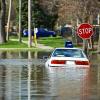
The EDITS-ARTS Competition called for submissions to imagine "life in 2050 with much less energy" into art, challenging positive-minded people to imagine a low energy future.
Sixteen artists were selected as finalists and met the EDITS Community online on a Friday afternoon, 20 May 2022, during the EDITS Annual Meeting 2022.. They presented a broad variety of arts ranging from thoughtful poems, exciting short stories, through lively videos and detailed cartoons, to beautiful paintings and even an innovative technological visual solution. Yet the vision of a positive future is similar, with some common threads including generational interactions, free time, wellbeing and equality, green living, etc. This was an inspirational meeting that will surely bud into ideas on both sides.
The Evaluation Committee found all submissions unique and highly valuable and it was an extreme challenge to select the winner.
- The winner of the first prize is Futuregram2050, who created a powerful 2-minute video to portray a positive transformative future and has clearly adhered to the three evaluation criteria. The production has a compelling narrative that presents a balance between having access to modern technologies and services using modern digital solutions, while at the same time being also willing to limit the demand. Using an Instagram-like future magical ball, they tell us the story of people living in 2050, with much less energy and with competitions to lower individuals' impact on the environment using digital and circular solutions. Watch the video below or on Youtube.
Three other submissions were awarded with a special mention, as they distinguished themselves for the way they pictured a low energy future:
- Eiven Mitchell: Here in 2050 - a vivid and engaging poem about 2050.
- Mai Nusir: A diary short story about a family in 2050.
- The Art and Energy Collective: an upcycled solar cell art (presented with a video below).
Other finalists were:
- Céline Keller: Somalia in 2050
- James Mckay: Yorkshire-in-2050
- Saher Hasnain: Attend
- Sally Cairns: Welcome to Heathrow
- Imagination Ignited: Haru Travels to 2050 (Part 1 and Part 2, below)
- WEFEL: Geneva in 2050
- Stephanie Reiner: Life in 2050
- Jasmin Dobrovsky: My balkony 2050
- THE LAST SUPPER PROJECT: The last supper project
- Katarína Korytárová: Life in 2050
Special thanks go to the Evaluation Committee for their dedication, engagement and hard work:
- Keigo Akimoto, RITE;
- Joyee S. Chatterjee, AIT-EDITS;
- Poornima Kumar, CSTEP/University of Oxford;
- Masa Sugiyama, University of Tokyo;
- Elena Verdolini, University of Brescia and RFF-CMCC;
- Charlie Wilson, University of Oxford;
- Caroline Zimm, IIASA.
News

30 May 2024
New method could significantly reduce agricultural greenhouse gas emissions

21 May 2024
IIASA is among the scientific partners of the Vienna Climate Biennale with CircEUlar project

19 April 2024



